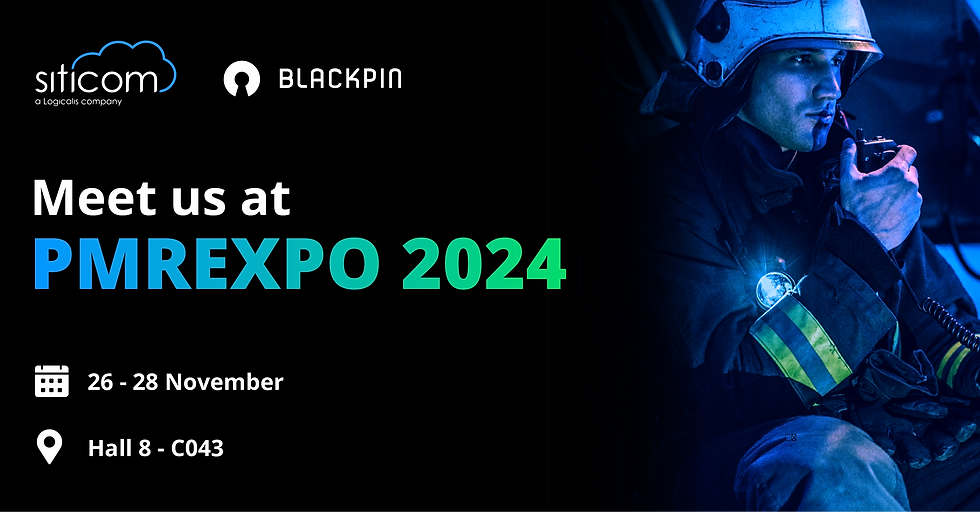Redefining Wireless: The Dynamic Link Between 5G and eSIM.
- corneliusneitzert
- Aug 10, 2023
- 4 min read
Updated: Sep 19, 2023
An interview with Kathrin Asmuth (achelos) and Patrick Kleiner (siticom): eSIM technology, short for embedded Subscriber Identity Module, offers significant advantages over traditional physical SIM cards, making it a preferred choice for various customers, particularly in the context of 5G networks and IoT devices.

Why eSIM and which customers does this concern?
P. KLEINER:
The primary reason for adopting eSIM is the elimination of the cumbersome process of physically changing SIM cards, which has been error-prone and inconvenient in the past. Instead, eSIMs can be provisioned and managed remotely through software and contactless services, simplifying the entire setup and activation process.
The key benefits of enhanced roaming capabilities without physical SIM changes and the advanced data security are of particular interest for the logistics industry: it enables the seamless management of devices on a large scale, making it particularly advantageous for IoT devices with diverse applications or "lives."
For instance, in a logistics scenario where IoT devices are employed across different facilities or geographic locations, each requiring specific security settings, eSIM technology allows for the remote provisioning and management of distinct profiles for these devices. This means that as devices move between different areas or security zones, their eSIM profiles can be automatically updated or switched, ensuring that they adhere to the appropriate security protocols for each specific location. This seamless and dynamic switching of security areas enhances operational efficiency, reduces the risk of security breaches, and enables logistics companies to maintain a high level of control and oversight over their IoT deployments, even on a global scale.
K. ASMUTH:
eSIM allows to seal the communication module, which significantly reduces the number of threats, from environmental or operational conditions as well as from malicious attack. This is especially true for connected industrial IoT devices that are increasingly deployed in dedicated, private 5G networks due to 5G’s advanced capabilities, particularly concerning reliability, throughput, latency and security.
eSIM profiles, that contain the device identity and related network access credentials, allow the IoT device to benefit from the strong authentication mechanisms defined in the 5G standards, such as mutual authentication between the device and the network, ensuring that only authorized devices can connect to the network. A major benefit of eSIM technology is the capability for remote provisioning and management of the eSIM profiles, which makes it easier to activate, configure, and manage devices without physically accessing them.
What are the challenges with eSIM & 5G and how do achelos and siticom address them?
P. KLEINER:
A significant challenge apart from industry standards and vendor dependency is, that implementing eSIM technology within the 5G ecosystem requires a comprehensive solution that goes beyond technical aspects. It also involves addressing potential security and resilience concerns. Creating a robust infrastructure that can handle eSIM provisioning, management, and security is essential to ensure uninterrupted connectivity and protect against cyber threats. Resilience is of utmost importance, especially as networks become increasingly critical to various sectors and industries.
K. ASMUTH:
This requires a Remote eSIM Provisioning (RSP) system, called SM-DP+ (Subscription Manager Data Preparation), complying with the technical and security requirements specified by the technology’s governing body, the GSM Association (GSMA).
achelos is an innovative RSP technology enabler offering a complete suite of solutions covering all the components specified by the GSMA. The achelos software is cloud-native and enables any deployment scenario, no matter if public, private or hybrid cloud environment. In particular, the achelos’ SM-DP+ can be deployed, integrated, and operated as an integral part of the private 5G core network stack, either on-prem or in the cloud, offering RSP as a function of the private 5G network core.
P. KLEINER:
In addition to this, a crucial aspect lies in the knowledge and understanding of the various cores and radios involved in the technology. This knowledge is vital for optimizing the performance and compatibility of eSIM-enabled devices with 5G networks. One key contribution comes from our radio experts.
Moreover, as system integrator we play a crucial role in addressing challenges related to use cases, customer requirements, and industry-specific knowledge. We can offer valuable insights into how eSIM and 5G can be effectively utilized across different sectors, providing customized solutions and consulting services to maximize the benefits for specific customer needs. Being early adopters of 5G we anticipate challenges, devise innovative solutions, and navigate potential pitfalls.
How do siticom and achelos work together in this area and where should the journey go?
P. KLEINER:
To effectively collaborate on the integration of eSIM technology with 5G networks and chart a successful path forward, we need to focus on two critical aspects: leveraging the strong connection between 5G service architecture and the eSIM ecosystem and prioritizing security through service separation on devices.
By pooling our resources, expertise, and customer insights, we can chart a successful journey forward, unlocking the full potential of eSIM and 5G technologies and delivering transformative experiences for businesses and consumers alike. Continuous research and exploration of innovative use cases will solidify our position as pioneers in this domain.

Kathrin Asmuth; Managing Partner achelos GmbH
In May 2008, Kathrin Asmuth founded achelos GmbH, a manufacturer-independent digital security company based in the German city of Paderborn. Together with her team, Kathrin Asmuth offers highly specialised solutions and services that help ensure cross-sector security of digital identities and embedded technologies in security-critical fields of application.

Patrick Kleiner; Expert Director siticom GmbH
Patrick Kleiner has vast experience in the telecommunications domain and P5G. He's particularly versed in Next Generation Network architectures, including Software Defined Networking (SDN) and the evolution towards the Internet of Things (IoT). A holder of 15 international patents and an active member of esteemed groups like IMTC and IETF, Patrick's work at siticom keeps him at the cutting edge of 5G and eSIM developments.


